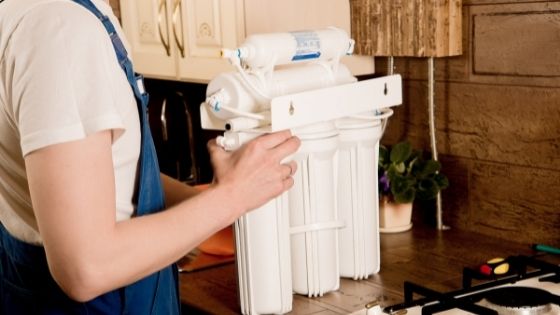According to the World Health Organization, 71 percent of the global population had access to safe, clean drinking water in 2017. Of course, if you’re living in America, that number becomes significantly higher. Around 99 percent of the United States has access to safe drinking water.


But this access isn’t always guaranteed. A prime example of a disaster that can ruin or contaminate drinking water is Flint, Michigan. Flooding, chemical spills, oil spills, tornadoes, and other unforeseen events can cause temporary contamination of drinking water.
This is one reason selecting water filters to use in your home is essential. These filters will often increase the quality of even moderately safe water, offering additional peace of mind. Continue reading to learn five factors you should be considering before choosing a home water filter.
1. Impurities in Your Tap Water
Each water filter gets rid of different impurities. Before selecting water filters, it’s essential to test your water to see what’s in it. Examples of water impurities include:
- Bacteria
- Micro-parasites
- Heavy metals
- Chemical pollutants
Once you know what’s in your water, look for a filter that handles that problem. Reading the labels on each filter should provide this information, but the filter company’s website could prove useful, too.
2. Brand of Filter
Buying off-brand filters or those from brands with poor reputations isn’t a great idea. This is your health you’re dealing with, after all.
Instead, research the reputation of different water filter brands by reading online reviews. One example of a water filter provider with good reviews is GE brand filters.
3. Filtration Rate
The filtration rate of a water filter is something that’s often overlooked. However, it’s essential. If a water filter doesn’t have an appropriate filtration rate for your needs, it will not work effectively for you.
So what is the filtration rate? This is the maximum amount of clean drinking water a filter can produce in 24 hours. It’s generally measured by gallons. You should check the water softener sizing options as well.
To determine your minimum filtration rate needs, consider how much drinking water you and your family consume each day. For example, let’s say you are a family of four, and you each drink about a half gallon of water each day. In that case, you’d need at least a two-gallon filtration rate.
4. Costs
Costs shouldn’t be the first thing you consider, but every person has a budget. When comparing filter prices, be sure to look beyond the upfront costs. You should be careful to consider upkeep and maintenance costs, too.
5. Filter Placement
There are several different types of water filter options. Each water filtration system will have a specific place it needs to be set up to work correctly.
Standard filter placement options include a water pitcher and over your faucet. But these aren’t the only options. Some systems sit on your countertop or get installed below the sink. Figure out which option works best for you.
More Questions About Selecting Water Filters?
Water filters can help create safe drinking water for those without access. It can also help increase water quality for people with only moderately (or minimally) safe drinking water. The five factors above can help people select the best option for themselves.
Do you have more questions about selecting water filters?
Check out our other blogs. You’ll find articles on home improvements, environmental safety, and related topics to help you learn more.
















